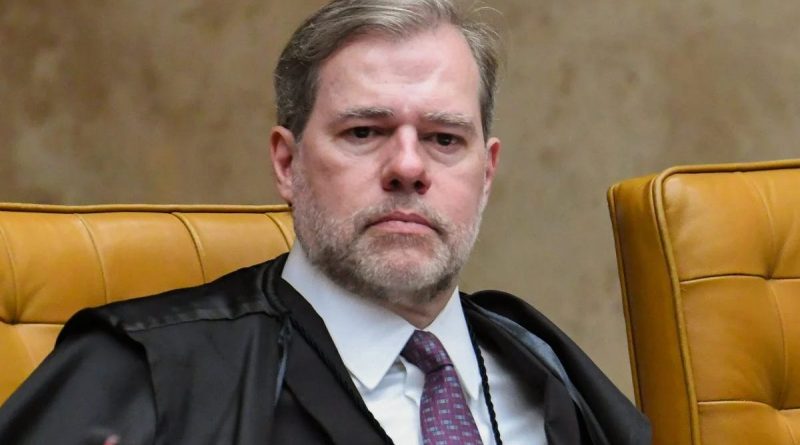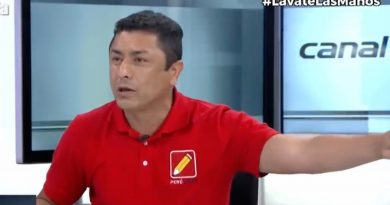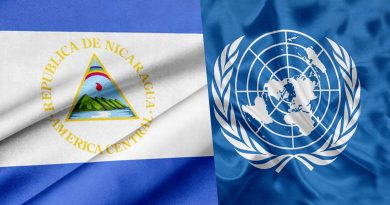Brazil’s Lava Jato Imprisoned Hundreds on Falsified Evidence: Judge
“Lula’s imprisonment one of the worst mistakes in Brazil’s legal history,” wrote Justice Dias Toffoli in ruling which de-legitimizes the Car Wash/Lava Jato Investigation
By José Higídio with translation by Brian Mier
Brazilian Federal Supreme Court Minister Dias Toffoli has ruled that all evidence obtained from the Odebrecht leniency agreement and evidence taken from its Drousys and My Web Day systems, as well as all elements derived from them, are inadmissible in any jurisdiction or level of the country’s court system. Therefore, such documents cannot be used in any criminal, electoral, civil, or administrative misconduct cases.
In the same decision, Toffoli issued an ultimatum to the Federal Police, which has so far failed to comply with the order to share the hacked messages from Operation Spoofing, (which reveal dialogues between lava jato prosecutors and former judge turned senator Sergio Moro). The agency has ten days to present the “full content of the seized messages, including all attachments and annexes, without any cuts or filtering,” to all defendants prosecuted by the agents identified in the dialogues. This decision was issued in response to a request from President Luiz Inácio Lula da Silva’s defense team.
Toffoli also set a final deadline of ten days for the 13th Federal Court of Curitiba and the Federal Public Ministry of Paraná to share the “full content of all documents, attachments, annexes, and proceedings related to the Odebrecht leniency agreement,” with President Lula’s defense team, under penalty of being charged with disobedience. He also ordered the Attorney General’s Office, the Attorney General, the Federal Revenue Service, the National Council of Justice, and the National Council of Public Prosecutors to identify and provide information about public officials who participated in the Odebrecht leniency agreement without following the formal procedures and taking the necessary steps to investigate responsibilities regarding the agreement. Brazil’s Attorney General’s Office (AGU) issued a statement announcing it will create an internal group to “investigate deviations by public officials and promote the repair of damages caused by decisions issued by the 13th Federal Criminal Court of the Judicial Subsection of Curitiba, Parana against Luiz Inácio Lula da Silva, the current President of the Republic, as well as by members of the Federal Public Prosecutors Office within the scope of the ‘lava jato’ operation.”
Disagreement
According to Toffoli, “the reasons that led to the inadmissibility of the evidence obtained from the leniency agreement signed by Odebrecht are objective” and not limited to the “subjective universe” of Lula. The agreement involved the division of funds between the governments of Brazil, the USA, and Switzerland, due to suspicion that Brazil’s then-largest construction company paid bribes in all three countries. However, the judge explained that there is no record of an international legal cooperation request to regulate the process in which the agreement was homologated or for receiving the content from Odebrecht’s systems. Nevertheless, negotiations occurred with foreign authorities, entities, and individuals, “all indicating that they happened outside the formal channels, meaning that they occurred outside the relevant legal framework,” he wrote, “The chain of custody and the technical integrity of the pieces of evidence obtained by the prosecution through these international negotiations were unquestionably compromised.”
In addition to direct negotiations with the US Department of Justice and the Attorney General of Switzerland, prosecutors and judges from Curitiba sent state resources abroad “without the necessary concurrence of official bodies,” such as the AGU, the Ministry of Foreign Affairs, and the Ministry of Justice and Public Security.
Regarding the Operation Spoofing Telegram leaks, Toffoli emphasized that, to date, the documents have not been sent in their entirety to the Supreme Court. He believes that “given the extreme seriousness of the events perpetrated, defendants should at least have the right to contest potential procedural irregularities resulting from coordinated action between the prosecution and the judge.”
History
This ruling is an extension of a 2021 decision in which Justice Ricardo Lewandowski (now retired) declared all evidence obtained from the Odebrecht leniency agreement with respect to President Lula to be inadmissible. The understanding was subsequently confirmed by the 2nd Panel of the Supreme Federal Court. After Lewandowski’s retirement, Toffoli assumed the responsibility for these cases. Since then, several other defendants in cases opened based on the analysis of these systems have requested and succeeded in annulling criminal convictions and charges based on the use of this evidence in their own cases. Some of the beneficiaries included Vice President Geraldo Alckmin (PSB) and former Rio de Janeiro governors, Sérgio Cabral, Anthony Garotinho, and Rosinha Garotinho. Toffoli has also issued dozens of individual decisions to share data obtained in Operation Spoofing.
Problematic Files
According to the Federal Public Prosecutors Ministry, the My Web Day and Drousys systems were used by Odebrecht’s structured operations department. Data from these systems were used as the basis for criminal charges against former President Lula. However, Federal Police experts admitted that the documents copied from the “structured operations department” of Odebrecht may have been tampered with. Inconsistencies were found, such as documents incriminating Lula having dates later than their seizure date in Switzerland. It was also revealed in messages between “lava jato” prosecutors, obtained by hackers and seized by the Federal Police, that the material that formed the basis of the accusation against Lula in 2018 was transported in supermarket bags.
The Odebrecht leniency agreement, the largest in Brazilian judicial history, was homologated in 2017 and, despite making significant waves, resulted in many cases annulled with few convictions.
Injustice
In his new decision, Toffoli calls Lula’s 2018 imprisonment “one of the biggest judicial errors in the country’s history.” Toffoli wrote that it was a “setup – the result of a power grab” by public officials who aimed to “take control of the state through seemingly legal means, but with methods and actions that were contrary to the law.” “It was a serpent’s egg,” he wrote, “hatched by authorities who abused their roles, acting in collusion to target institutions, authorities, companies, and specific individuals.”
Toffoli wrote that the individuals involved in the case “disrespected due process, violated superior court decisions, manipulated evidence, acted with bias, and acted outside their jurisdiction.” It was was “psychological torture – a 21st-century rack used to obtain ‘evidence’ against innocent people .”
Lava Jato, he wrote, “targeted natural and legal persons, regardless of their guilt or innocence and destroyed national technologies, companies, jobs, and public and private assets.”
Toffoli wrote of “a cover-up in the name of fighting corruption, with the intention of imprisoning a political leader, with bias and in collusion and forging of ‘evidence.'”
Beyond Lula’s case, the minister ruled that hundreds of leniency agreements and plea bargains were used to imprison innocent individuals.
Finally, Toffoli said that the bias of Moro and the 13th Federal Court of Curitiba “went beyond all limits and certainly contaminated various other proceedings.”
*This article, published in CONJUR was translated from its original Portuguese by Brian Mier and can be read in it’s original language here.



